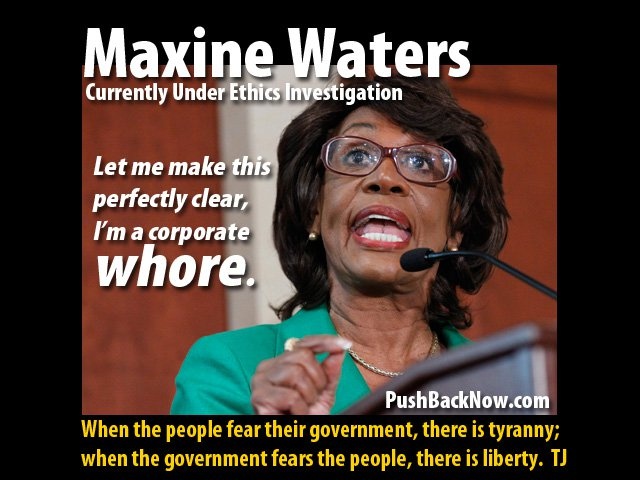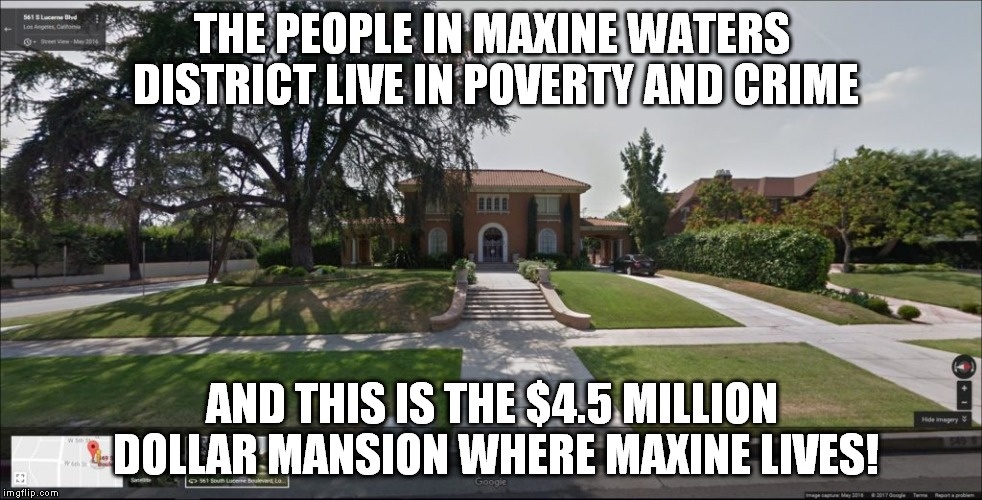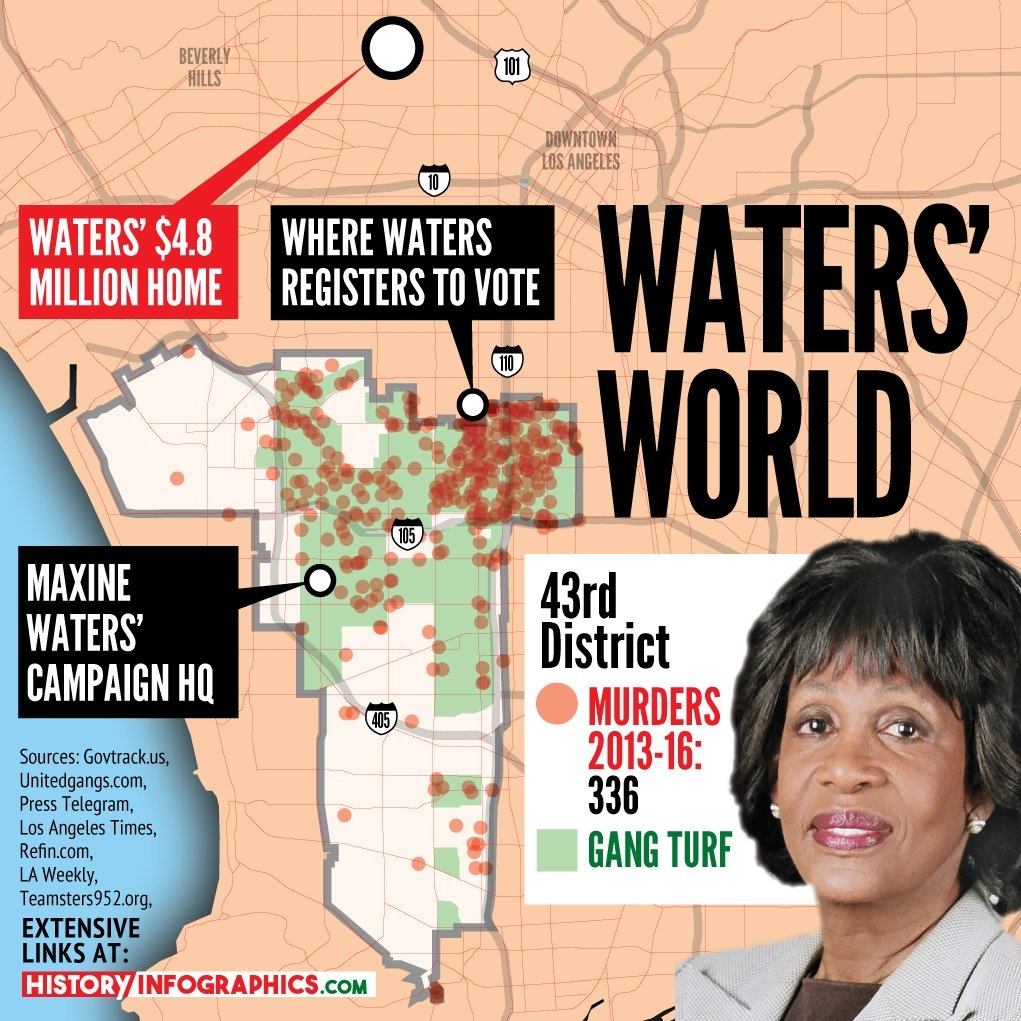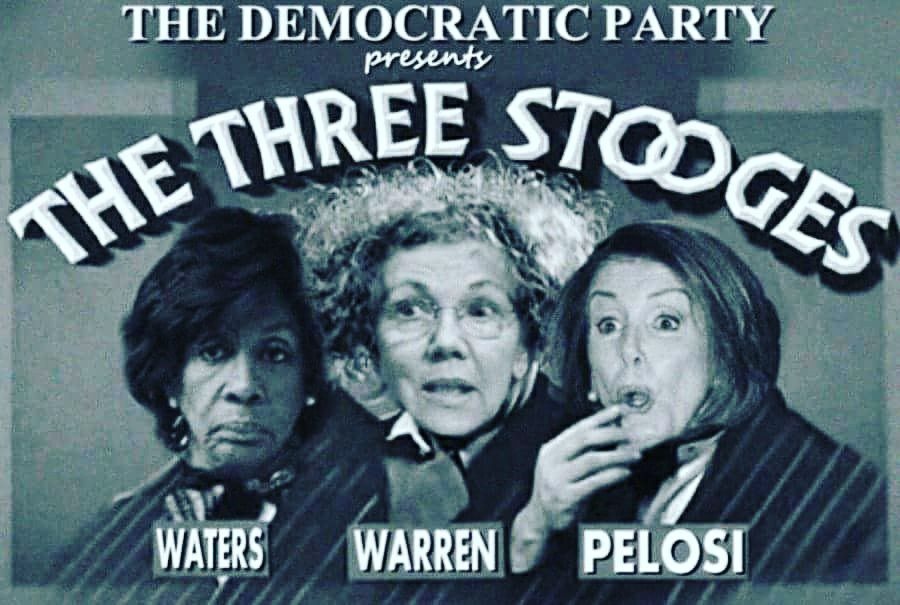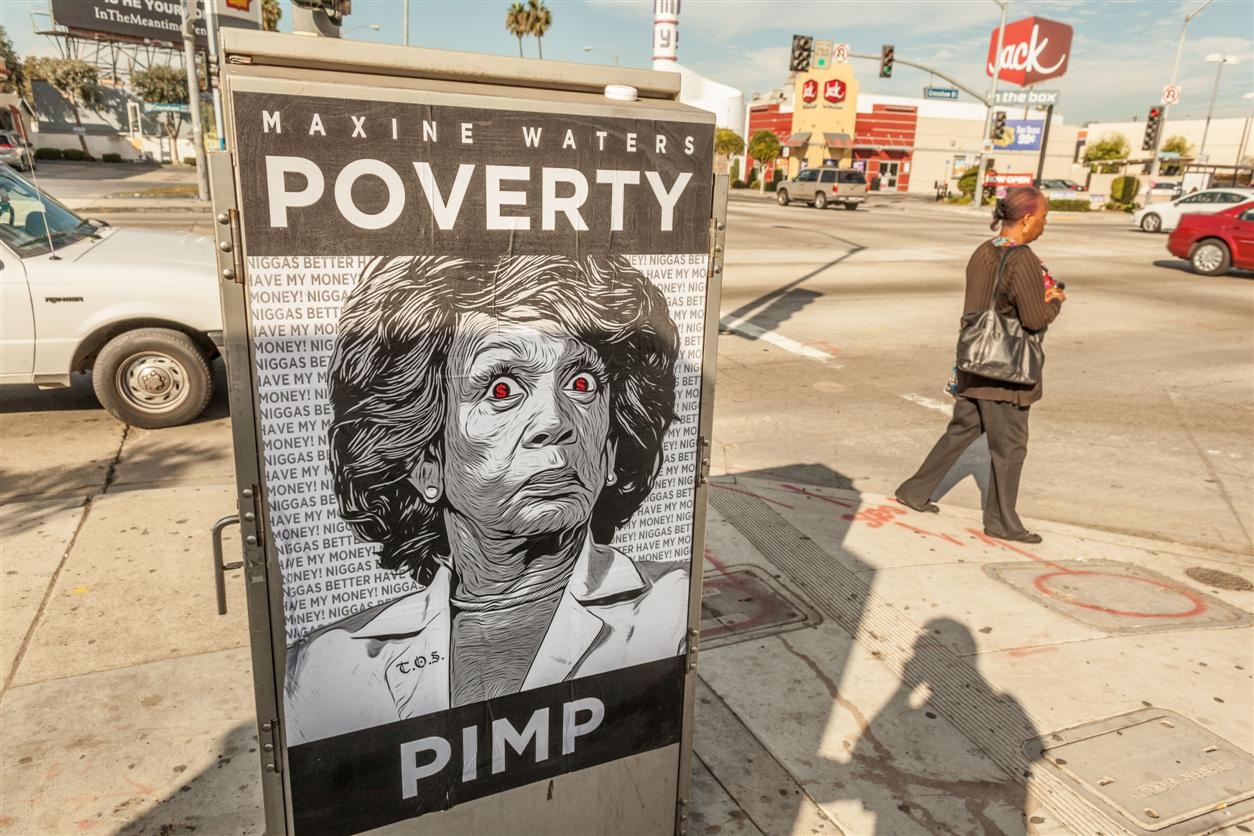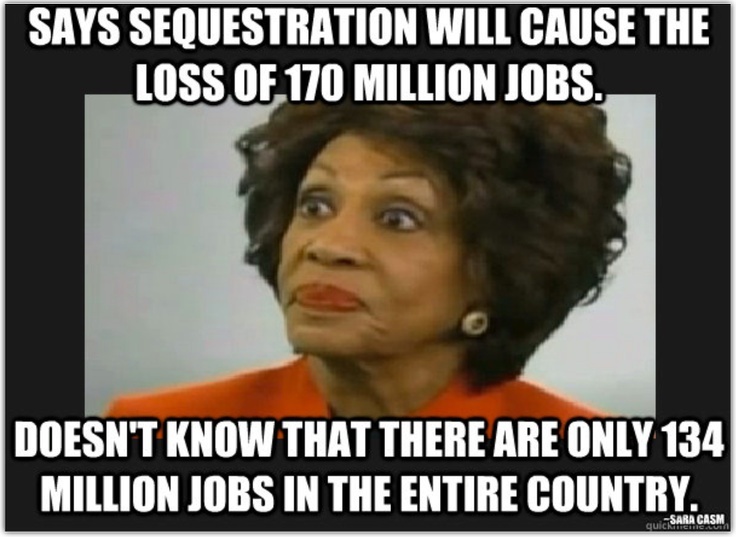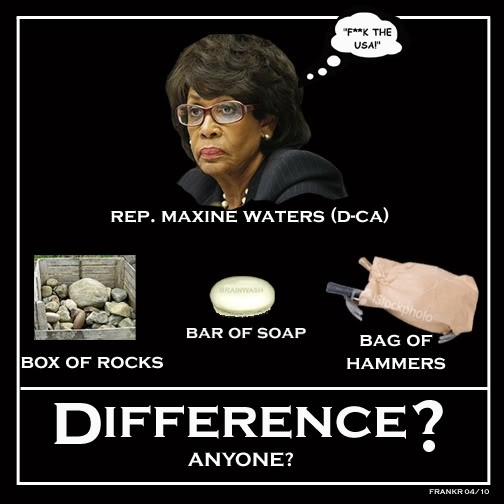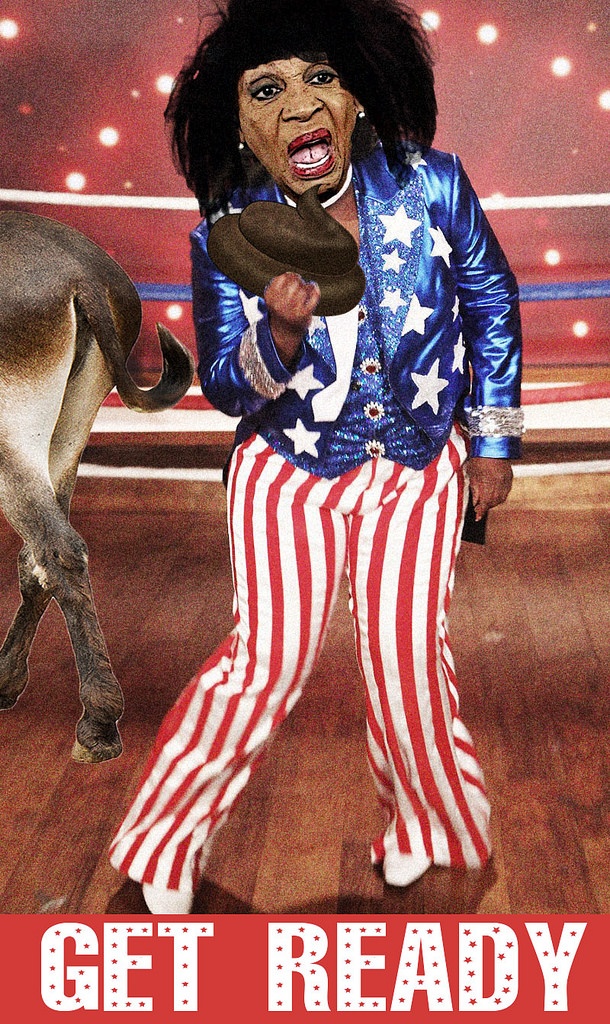
- dilbert firestorm
- 06-12-2017, 11:47 PM
- dilbert firestorm
- 06-12-2017, 11:48 PM
- dilbert firestorm
- 06-12-2017, 11:49 PM
- dilbert firestorm
- 06-12-2017, 11:50 PM
- dilbert firestorm
- 06-12-2017, 11:51 PM
- dilbert firestorm
- 06-12-2017, 11:53 PM
- dilbert firestorm
- 06-12-2017, 11:54 PM
- dilbert firestorm
- 06-12-2017, 11:54 PM
- dilbert firestorm
- 06-12-2017, 11:55 PM
- dilbert firestorm
- 06-12-2017, 11:56 PM
- dilbert firestorm
- 06-13-2017, 12:00 AM
- dilbert firestorm
- 06-13-2017, 12:01 AM
- dilbert firestorm
- 06-13-2017, 12:03 AM
- IIFFOFRDB
- 06-18-2017, 10:28 PM
 SLATE! fuck yeah! An Oldie but a Muddy Goodie!
SLATE! fuck yeah! An Oldie but a Muddy Goodie!http://www.slate.com/articles/busine...dy_waters.html
NOV. 3 2010 3:22 PM
Muddy Waters
How Maxine Waters and Barney Frank let one bank repackage its problem as a national crisis.
By Bethany McLean
On Nov. 29, Congresswoman Maxine Waters, D-Calif., will face a House ethics trial for the role she allegedly played in helping a minority-owned bank called OneUnited—a bank in which her husband owned a sizable stake and on whose board he'd once sat—get $12 million in the 2008 bank bailout. Had OneUnited failed, the ethics committee that brought the charges alleges, Waters' husband's "financial interest in OneUnited would have been worthless." The ethics committee alleges that Waters' chief of staff and grandson, Mikael Moore, was "actively involved" in helping OneUnited and that Waters' "failure to instruct [him] to refrain from assisting" the bank violated House rules. Waters has strongly denied the charges: "No benefit, no improper action, no failure to disclose, no one influenced: no case."
The Washington Post and the Wall Street Journal have reported in detail about the involvement of other powerful people in OneUnited's rescue—most notably, House financial services Chairman Barney Frank. But one question that nagged at me was precisely how, in the midst of a full-scale meltdown of the U.S. banking system, the rescue of one small, not-very-well-managed bank captured anyone's attention in Washington. And, oh, how it did, as documents I recently reviewed show. At times, those involved in helping OneUnited have argued that they were broadly focused on saving minority and small banks—which, if true, would have been a critically important task. But the documents also show that while the specific crisis facing OneUnited was indeed presented, more than once, as a crisis facing minority-owned banks in general, the Federal Deposit Insurance Corporation pretty much immediately told all concerned that this crisis did not, in fact, exist. The documents also show staffers repeatedly proposing solutions that were specifically tailored to OneUnited, rather than to any broader group of banks. No other bank, whether a small bank or a minority-owned institution, seems even to have merited individual attention in the memos. One question Waters' trial will likely answer is why OneUnited got such special treatment.
OneUnited was founded in 1982, and grew through a series of acquisitions into the country's largest minority-owned bank, with branches in Los Angeles, Miami, and Boston. A majority of the stock—51 percent—was owned by Kevin Cohee, who serves as the bank's CEO, and his wife, Teri Williams, who serves as president. OneUnited and Maxine Waters have a longstanding relationship. The Cohees gave money to her campaigns and had her to their home for a fundraiser and a company Christmas party, according to ethics investigators. In March 2002, when a minority-owned bank in California called Family Savings Bank was on the block, Waters and others sent a letter to Gray Davis, then the state's governor, urging that Davis "do whatever is necessary and within your power to insure that Family Savings Bank is acquired by a minority-owned financial institution." Cohee's bank ended up acquiring Family Savings. In January 2004, Waters' husband, Sidney Williams, joined OneUnited's board; although he left in the spring of 2008, by that summer, he still held about $352,000 worth of stock, which according to the ethics committee accounted for somewhere between 4.6 percent and 15.2 percent of Rep. Waters' and her husband's combined net worth.
As the financial crisis gathered steam over that scary summer of 2008, OneUnited ended up in a precarious position. The bank owned just over $50 million of preferred shares in Fannie Mae and Freddie Mac, which accounted for literally all of its capital. On Aug. 22, 2008, Robert Patrick Cooper, who served as both OneUnited's senior counsel and as the chairman-elect of the National Bankers Association, which is the trade association for the nation's minority- and women-owned banks, sent Waters a letter on OneUnited letterhead, telling her that the "recent decline in the value of the preferred stock of [Fannie and Freddie] creates significant and possibly fatal losses for minority banks [italics mine]. …" Waters, the ethics committee notes, has dedicated considerable effort over the years to helping minority and community banks. Rather than warn about imminent losses to "minority banks," however, Cooper would have been more truthful to warn about losses facing "my minority bank."
On Sept. 7, the government put Fannie and Freddie in conservatorship, wiping out the value of the preferred shares. The next morning, Sept. 8, Paulson's assistant, Christal West, sent an e-mail to others at the Treasury Department. Waters, it said, "called [Paulson] this morning. They just spoke and he agreed to have the Minority Bankers Assn come to Treasury tomorrow for a 10:00 am Meeting with[Anthony Ryan, who was then the Treasury's acting undersecretary for domestic finance]." Paulson told investigators unequivocally that he wouldn't have set up the meeting were it not for Waters' phone call, and he was confident that she didn't mention any financial interest or any specific bank. As for Waters, she told investigators that "you don't use your chits for nothing, you call when there is an important issue."
Off the bat, investigators noted that it was "cause for concern" that although there were 103 minority- and women-owned banks, two of which were in the Washington, D.C., area, no representatives of those banks were present. Indeed, of the four people who were scheduled to attend that Sept. 8 Treasury meeting from the minority bankers' trade association, only one wasn't affiliated with the Boston-based OneUnited. This caused some surprise at Treasury. The evening before the meeting, Treasury staffer Jeb Mason wrote, "Does everyone know that [National Bankers Association] is bringing just four people?" Staffers were also concerned that given the size of the NBA party, it would seem strange to have representatives from the Office of the Comptroller of the Currency, the FDIC, the Fed, and the Office of Thrift Supervision there. But as Mason wrote, "If they really want to be there, I think we should let them—they may given who's asking. …" The meeting was also attended by Erika Jeffers, a counsel for the House financial services committee, which is chaired by Barney Frank, and by Waters' chief of staff, Mikael Moore.
According to a memo sent late that evening by FDIC staffer Sandra Thompson to FDIC Chairwoman Sheila Bair, the substance of the meeting made it clear that this was a OneUnited issue. Thompson wrote that during the meeting, the OneUnited attendees argued that Treasury's action had "totally wiped out their capital." She continued, "They asked Treasury to make them whole and infuse $50 million. … They also said that the Treasury's actions with respect to [Fannie and Freddie] have impacted a lot of [minority depository institutions]—and the entire minority banking community was devestated [sic]." But when Thompson asked how many banks were affected, Cooper, the OneUnited senior counsel and chairman-elect of the minority bankers' trade group, said he didn't know. Thompson wrote in her memo to Bair, "I then mentioned that the universe of affected [minority-owned banks] was less than five institutions." After the OneUnited executives had left, Thompson's memo says that she explained to the other regulators and Treasury that they were talking about only two institutions. (The other was a small Texas bank that was on the verge of failure regardless.)
According to Waters' presentation and testimony, it wasn't until she understood that OneUnited was interested in receiving funds from the bank bailout (the Troubled Asset Relief Program, or TARP) on or around Sept. 20 that she "realized that if they were asking for money that I perhaps should take a distance from that." So she told Barney Frank, "Barney, I can't deal with that." Frank, according to investigators, said this was a "conflict of interest problem" and told her to "stay out of it" and asked his staff to take over the OneUnited issue. He also told investigators that he had at least two conversations with Rep. Waters in which he told her not to get involved with OneUnited, but he said he couldn't remember specific dates. Frank has told the press and investigators that he got involved independently after hearing from constituents—OneUnited is headquartered in his state. He was, he's said, broadly concerned about—you guessed it—the fate of minority and small banks during the financial crisis and that this was in no way a "handoff" from Waters.
What's clear is that the high-level interest in solving OneUnited's problem didn't abate even after everyone knew that this was pretty much a one-bank issue. FDIC chief Sheila Bair responded to Thompson's memo: "OK, Paulson called me and said they would try to help if necessary though he wasn't sure they could legally. I told him I thought we could help them work through it but would let him know if help was needed. …" And on Sept. 9, Erika Jeffers sent an e-mail to Frank in which she told him that "OneUnited Bank argued that it was in serious danger of failing if Treasury decides not to offer some sort of protection of [sic] buyback to it … it is unclear to me whether there are any other [minority owned institutions] that are facing the same capital situation as OneUnited right now. … FDIC staff seemed skeptical. …"
E-mail traffic suggests that some agency staffers weren't thrilled by the situation. On Sept. 12 , after an FDIC staffer wrote a memo noting that it wasn't clear Treasury could take action, another staffer responded: "How's this angle evolving? Going nowhere I hope. There is no reason to talk about moral hazard if it does. These guys chase 8 or 9 [percent] yields and expect it to be risk free. It's a joke."(It turns out that OneUnited had bought the Fannie and Freddie preferred stock in early 2008, when it was already yielding a higher than normal amount due to the market's concern about the risk.)
E-mail traffic also shows that both FDIC and Treasury staffers were aware that there were questions about OneUnited's commitment to community lending. On Sept. 11, an FDIC staffer forwarded a document to the Treasury, writing, "The [Community Reinvestment Act] public evaluations are of particular note." Indeed, although OneUnited did, from 2004 to 2007, win the highest Bank Enterprise Awards from the Treasury for community development lending, in 2004, the bank overall got a Community Reinvestment Act rating of "low satisfactory," including a rating of "substantial noncompliance" in Florida. By 2007, the overall rating had improved to "satisfactory," but OneUnited continued to have "Substantial Noncompliance" in Florida. The report chided the bank for its overall low level of lending and stated that "the bank's community development lending activities are marginally adequate, but investments and services are in need of improvement." In an interview with the Boston Globe, OneUnited chief Cohee defended the bank's track record, saying that he didn't want to make predatory loans. But these were not the only questions that would arise about OneUnited's track record.
OneUnited didn't stop after asking the Treasury for $50 million.On Sept. 10, OneUnited senior counsel Cooper, this time on letterhead for the National Bankers Association (where he was still chairman-elect), sent a follow-up letter to Treasury's Tony Ryan, again asking for money. "While the return of this capital is very important to the continued health of minority banks [italics mine], given their size, it is not significant to the government in absolute dollar terms," he wrote.Cooper cc'd Paulson, Frank, Dodd, Waters, and others; a OneUnited employee also forwarded the letter to Waters' chief of staff, Moore, who in turn forwarded it to Erika Jeffers on the House financial services committee staff.
OneUnited also began pursuing what Cooper, in a Sept. 19 e-mail to Moore, described as an "alternative back up strategy in case Treasury does not grant the specific relief that we are requesting within the next couple of days." He added, "We would appreciate your thoughts, comments, etc on both the strategy and the particular language."The idea was to have congressional appropriations language drafted that would allow for the repurchase of the preferred stock. Cooper added, "We are under extreme time pressure." He asked Moore to share that message with committee counsel Jeffers; that same day, Moore sent another e-mail to her with only the subject line, "OU is in trouble."
On Sept. 22, Jeffers sent a memo to Frank laying out his options: "I have called over to Treasury congressional staff a number of times and Jeanne [Roslanowick, the chief counsel of the House financial services committee] has reached out directly to [Kevin Fromer, the top Treasury liaison to Congress] but we have not been able to get a firm commitment from them about whether they will pursue National Bankers Association's (NBA) proposal to redeem the [Fannie and Freddie] preferred stock held by minority depository institutions. … [D]o you want to try to include a specific reference in the [appropriation] to address the NBA's proposal or continue to have staff try to get Treasury to issue a firm commitment to implement the proposal?" She also told Frank that "… without a firm commitment from Treasury to redeem the [Fannie and Freddie] preferred stock, OneUnited believes the bank will be shut down at the end of the month." Neither of these proposals went anywhere.
By that time, Paulson had announced the need for what would become TARP. In a Sept. 23 e-mail, John Hughes, another staffer on the financial services committee, wrote to Jeffers and Lawranne Stewart, the committee's deputy chief counsel, that Frank "confirmed this afternoon that he wants to address this in the rescue bill." And so it was. Within the Emergency Economic Stabilization Act (which created TARP), Section 103, subsection 6 requires that special consideration be given to "providing financial assistance" to institutions that serve low- and moderate-income communities, have assets of less than $1 billion, and have suffered materially as a result of the devaluation of Fannie and Freddie's preferred stock. Frank told the Wall Street Journal that he wrote the provision specifically to benefit OneUnited (correct), but he emphasized to the Washington Post that this was not the direct payment OneUnited had sought, but rather, a broader provision for institutions serving low-income populations that had been hurt by the conservatorship of Fannie and Freddie (incorrect).
I don't mean to suggest that other small banks weren't suffering from Fannie and Freddie's implosion. On Sept. 24, the financial services committee's Jeffers received an e-mail from the Independent Community Bankers of America, the trade association for community banks, telling her that these banks had problems as a result of their ownership of Fannie and Freddie preferred stock. "Even those banks that remain well-capitalized have sustained significant hits that will impair their ability to lend and serve their communities," the ICBA wrote. But the section written into TARP that helped OneUnited apparently didn't help these other community banks. A year and a half later, the ICBA sent another letter, this time to current Treasury Secretary Tim Geithner, asking the Treasury to make them whole on their preferred shares in Fannie and Freddie. When I asked the ICBA's chief economist, Paul Merski, what the problem was—didn't 103(6) bail them out, too?—he replied that 103(6) wasn't relevant to his organization's problems, because (for reasons too complicated to elaborate here) these banks didn't want to participate in TARP. "That program wasn't a solution to the preferred stock issue," he said.
On Sept. 28, the day that congressional leaders announced they had an accord on the bank bailout, Cooper, the general counsel of OneUnited, wrote to Moore, Waters' chief of staff, again. "Thank you for all of your hard work!" he said. (The legislation was defeated on its first vote on Sept. 29 but passed on Oct. 3.)
That isn't quite the end of the story, because OneUnited needed not just the ability to get money, but the money itself. To do this, it needed leniency from the FDIC. On Oct. 17 King Mueller, deputy assistant secretary for banking and finance, wrote to others at Treasury that he had just spoken to an aide in Frank's office. "This is about One United Bank. … Maxine Waters is interested in the bank as well. … [Frank] is interested and may call [Paulson] again about this. … FDIC [has] … gotten similar interest from[Frank's] staff. The bank is worried about call report data that goes public on Oct 30th, concerned it could lead to a run if they don't have a [capitalization] plan in place by then. Obviously want to use TARP and likely will request much more than is set out in the term sheet—[Frank] will point to the Considerations language (Sec 103, subsection 6). …"(This e-mail was first obtained by Judicial Watch, a nonprofit government watchdog.)
A few days later, Treasury's Mueller wrote again: "I got another call from BF's office about this. They continue to express concern about the Oct. 30th date. …"
On Oct. 30, the FDIC's board of directors voted to give OneUnited an exemption from accounting rules that in essence allowed it to count an extra $17.7 million in its capital. OneUnited had a deal in place that if it could be categorized as adequately capitalized, State Street Bank (another bank headquartered in Boston) would invest another $17 million. Although the Washington Post says that two other banks who applied for a similar exemption were denied, the FDIC says that neither was minority-owned and that neither had a plan to raise new capital. The FDIC also says that there was at least one other instance in which another federal regulator granted a similar exemption.
On Oct. 31, OneUnited chief Kevin Cohee sent another "thank you" to Maxine Waters, her chief of staff Mikael Moore, committee counsel Erika Jeffers, and several others. He wrote,"Thank you for your kindness and consideration in helping us to consummate this transaction. … [T]he Bank is now adequately capitalized and we will be applying to the TARP program next week."
OneUnited had reached an agreement with the FDIC. It consented to a truly remarkable document—a 38-page cease and desist charging that, among other things, the FDIC had "reason to believe" that OneUnited had "engaged in unsafe or unsound banking practices and violations of law," including "operating without an appropriate risk management program" and "allowing the payment of excessive compensation, fees and benefits to its senior executive officers." The FDIC required OneUnited to sell "all bank-owned automobiles" (including, reportedly, a Porsche) that it provided for executives' use and to hire a consultant to "assess the appropriateness of all current and deferred compensation paid to the Chairman and Chief executive officer and the president, in light of each individual's competence, responsibilities, and performance." OneUnited neither admitted nor denied the allegations. (The Washington Post has revealed other troubling details about Cohee's lifestyle.)
Next, OneUnited applied for TARP funds. While Waters claimed in August that OneUnited "did not benefit from section 103(6)," that's demonstrably untrue. Her staff says that she did not have access to the bank's actual TARP application at the time, the first page of which cites, under "mitigating factors," Section 103. Although a report by the TARP inspector general says that eligibility was supposed to be based on the "strength and viability of each applicant … without taking into account the potential impact of TARP funds," OneUnited was allowed to count the prospective TARP funds as capital it already had for the purposes of evaluating its viability. (Yes, that's a circular argument.) In December, OneUnited got $12.063 million of taxpayer money on the condition that it raise $20 million from its existing shareholders, which it did.
Lori Bettinger, the TARP program's deputy director, has said that transactions aren't classified by whether they fell under provisions such as Section 103(6) or not. But one person familiar with events says that regulators have not been able to cite another bank—not a single one—that made use of section 103(6); no one I spoke to was able to provide me with another example. According to the Washington Post, out of the 707 recipients of TARP, OneUnited was the only bank to receive the entirety of the considerations that it did. The Post also noted that other banks that faced somewhat similar situations weren't able, unlike OneUnited, to raise private capital.
The TARP inspector general noted in his report that although OneUnited was evaluated differently than other applicants, the approval was "still consistent with applicable statutory provisions" and that "failure to consider the relevant mitigating circumstances might have resulted in a violation" of TARP's enabling legislation. The FDIC inspector general concluded, after looking into the agency's actions, that there was no improper influence. OneUnited CEO Cohee told the Washington Post that "OneUnited received the TARP [award] based on the merits of its past performance and its future prospects." He added that the bank is not troubled and didn't need the award "to prosper." That's nonsense: His bank needed the award to survive.
On Aug. 26, 2009, after the first dividend payment on the TARP money had come due, Cohee sent a short e-mail to people at Treasury. "Please accept this as our notice that we will not be paying a dividend to any of our shareholders," he wrote. "Do you reckon this is an acceptable response from OneUnited," wrote one Treasury staffer to others in response. The bank has now missed six payments.
On Oct. 13, 2009, Steve Adamske, who was then communications director for the financial services committee, * wrote toHouse financial services committee chief counselJeanne Roslanowick. "Guess which bank missed their monthly payment to the Treasury dept? The only bank to miss a payment and, by the way, it was the first monthly payment it was required to make. Dare to take a guess?" Roslanowick wrote back, "[O]ur very own?" And Adamske confirmed: "OneUnited."
Update, Nov. 4: Both FDIC chief Sheila Bair and then-Treasury secretary Henry Paulson were deeply concerned that Fannie and Freddie's failures might cause widespread problems for small banks, * which helps explain why both got involved in this saga. But they also figured out even more quickly than I'd thought that the FDIC's staff didn't think that was the case. If you have any doubt on either issue, let me quote an e-mail I acquired after posting this article. Dated Sept. 7, 2008, it was sent by Bair to Paulson:
Just to follow up on your phone call, we have been monitoring bank exposure to [Fannie and Freddie] equity securities for several weeks and previously gave your staff our analysis that only a handful of smaller banks [italics mine] had holdings which could significantly impact capital. We have been in contact with those banks that we regulate and have been advised that other regulators have done the same. We will continue vigorous outreach with impacted banks and assistance with capital restoration plans[.]
Correction, Nov. 4, 2010: An earlier version of this article stated, erroneously, that Adamske was Barney Frank's chief of staff. ( Return to the corrected sentence.)
Clarification, Nov. 4, 2010: An earlier version of this update stated that Bair and Paulson were concerned that "OneUnited's problem might be widespread." While technically correct, the reference to OneUnited is misleading in the context of the Sept. 7, 2008 e-mail, because as of Sept. 7 neither Bair nor Paulson knew that OneUnited had a problem. ( Return to the sentence.)
- Yssup Rider
- 06-19-2017, 12:49 AM
HAHAHAHAHAHHAAAA!
